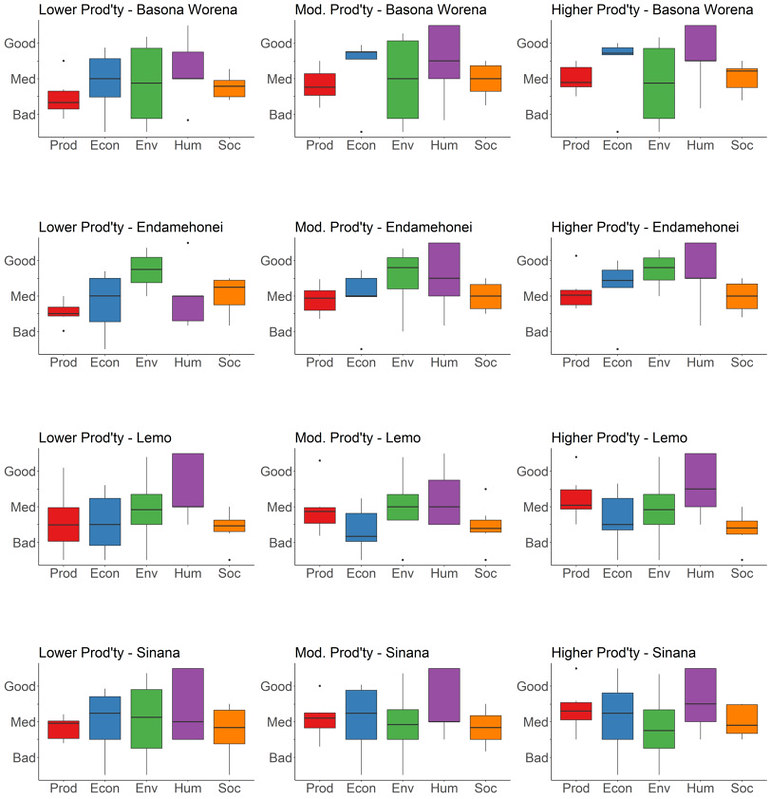Africa RISING contributes to sustainable agricultural intensification in the Ethiopian highlands
Sustainable intensification (SI) is one of the approaches that enable increased food production without undermining sustainability goals. In recent years, new tools and indicators have been developed for broad-based assessment of sustainable intensification. But most of these tools have been applied at the field level for a single technology.
Recently, a team of scientists from the International Livestock Research Institute (ILRI) published an article elaborating on the assessment of multiple SI technologies, implemented concurrently, at the farm-to-landscape (or district) level. They examined how sustainable intensification can contribute to Ethiopian farming system development by improving food, nutrition, and income security for smallholder farmers; without undermining the natural resource base. The scientists applied several approaches such as an expert-led threshold setting exercise to re-scale 27 indicators grouped in agricultural production, economics, environment, human welfare, and social domains.
Figure 1. The aggregated scores for each of the five sustainability domains: agricultural production, economic, environmental, human welfare, and social. Each row represents one of the four study sites.
By assessing the outcomes from a wide range of sustainable intensification technologies on multiple crops, livestock, and natural resource management, the scientists found more synergies than trade-offs SI domains (productivity economic, social, human, and environmental) across all the four Africa RISING sites investigated in Ethiopia.
‘In this case increased agricultural productivity for crops and livestock led to improved conditions for people – such as incomes and food security – and no negative impact on the environment,’ says Jim Hammond, the lead author of the paper and a scientist at ILRI in Ethiopia.
He adds that ‘the results confirmed, in most cases, significant synergies between increased agricultural productivity and especially the economic, human and social domains. There may be more win-wins in situations like these, where productivity and development status are low.’
This research was supported by the United States Agency for International Development (USAID)-funded Africa RISING Ethiopian highlands project.
Download the full paper: Assessing smallholder sustainable intensification in the Ethiopian highlands





